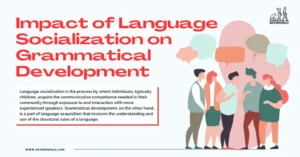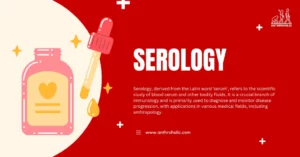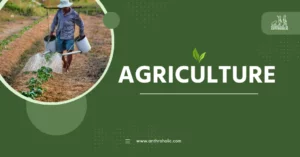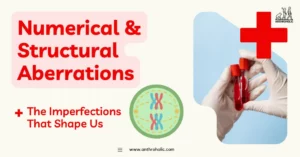AI Answer Evaluation Platform Live Now. Try Free Answer Evaluation Now
Center for World Indigenous Studies
Imagine a world where Indigenous wisdom and modern policy walk hand in hand-where the deep ecological understanding, governance systems, and cultural traditions of Indigenous Peoples shape global solutions. That’s not just a dream; it’s the mission of the Center for World Indigenous Studies (CWIS).

Founded in the wake of rising global awareness of Indigenous rights, CWIS stands at the crossroads of research, education, and advocacy, working to elevate Indigenous knowledge systems as essential to sustainable development, health, and governance worldwide. More than just an academic institution, CWIS operates like a living bridge-connecting tribal communities with policymakers, scholars with elders, and tradition with innovation.
What Is the Center for World Indigenous Studies (CWIS)?
Founding Mission and Historical Context
The Center for World Indigenous Studies (CWIS) was founded in 1979 by Dr. Rudolph C. Ryser, a political scientist of Cree descent, and Chief George Manuel, a prominent leader of the Secwepemc Nation and the first president of the World Council of Indigenous Peoples. Their shared vision was to create an independent, non-profit organization that could advance the understanding and application of Indigenous knowledge systems in policy development and governance.
Their work began as a response to systemic exclusion of Indigenous voices in global decision-making. Unlike most think tanks of its time, CWIS centered Indigenous epistemologies, promoting self-determination and cultural sovereignty through a research agenda shaped by Indigenous communities themselves. From its early days, CWIS made it clear that Indigenous perspectives were not “alternative” but central to understanding global challenges like health, climate, and conflict.
Key Figures Behind CWIS
Two pioneering figures helped shape CWIS into a global force:
- Dr. Rudolph C. Ryser, a lifelong advocate for Indigenous rights, played a crucial role in developing political theory based on Indigenous governance structures. His writings, such as Indigenous Nations and Modern States (2012), are cornerstones in the field of Indigenous studies.
- Chief George Manuel (1921–1989) helped internationalize the struggle of Indigenous Peoples. His work, especially The Fourth World: An Indian Reality (1974), laid the ideological foundation for CWIS and continues to influence its direction today.
Together, they envisioned CWIS not just as a research hub, but as a strategic instrument for change, rooted in Indigenous worldviews.
CWIS’s Role in Indigenous Knowledge and Policy Research
H3: Promoting Indigenous Governance Systems
At the heart of CWIS’s work is the promotion of Indigenous governance models-systems that have governed communities sustainably for thousands of years. CWIS argues that these systems offer viable, often superior alternatives to Western governance, especially in areas like:
- Resource management
- Conflict resolution
- Health and wellness systems
- Community accountability
The organization collaborates directly with tribal governments and Indigenous councils worldwide, offering guidance rooted in tribal constitutional design and sovereignty frameworks. Through publications and workshops, CWIS highlights how tribal law and customary practices can effectively shape local and international policy.
Research Publications and Global Collaborations
CWIS has developed a rich library of research papers, reports, and monographs through its Chief George Manuel Memorial Library, a free, digital resource hosting over 100,000 documents. Their publication series, such as The Fourth World Journal, publishes peer-reviewed research by and for Indigenous scholars on topics like decolonization, land rights, and intellectual property.
In addition to its own research, CWIS works with international bodies like the United Nations Permanent Forum on Indigenous Issues (UNPFII) and regional Indigenous groups from the Americas, Asia, Africa, and the Pacific. These collaborations have helped shift global discourse to include Indigenous priorities in climate agreements, development frameworks, and legal reforms.
Education and Knowledge Sharing Initiatives
The CWIS Digital Library and Resources
One of CWIS’s most powerful tools for advocacy and education is its extensive digital archive, the Chief George Manuel Memorial Library. This online resource makes a vast range of materials—from tribal treaties and policy briefs to health studies and oral histories-freely accessible to the public.
Key features include:
- Fourth World Documentation Project: A unique initiative archiving Indigenous perspectives on governance, law, and development.
- Monographs and policy reports: Covering climate change, biodiversity, cultural protection, and conflict resolution.
- Audio-visual content: Interviews, oral traditions, and documentaries created or endorsed by Indigenous communities.
The goal is not just information sharing, but knowledge sovereignty—giving Indigenous Peoples the ability to control how their stories and intellectual heritage are preserved and shared.
Fellowships, Internships, and Scholar Networks
CWIS also invests in the next generation of leaders and researchers through:
- Internship programs that allow students to engage directly in Indigenous-led research.
- Research fellowships focused on applied Indigenous policy and fieldwork with tribal nations.
- The Indigenous Scholars Network, which connects thinkers, activists, and elders across continents.
These initiatives create intergenerational knowledge exchange, ensuring that Indigenous methodologies and ethical standards guide research and advocacy efforts.
Impact on Global Indigenous Rights and Cultural Sovereignty
Contributions to UN Indigenous Frameworks
CWIS has had a long-standing influence on the shaping of international Indigenous rights frameworks. Its research and advocacy informed key moments in global policy, including:
- The drafting of the United Nations Declaration on the Rights of Indigenous Peoples (UNDRIP) in 2007.
- Recommendations to the UN Permanent Forum on Indigenous Issues and other international human rights mechanisms.
CWIS representatives frequently participate in international forums, advocating for the recognition of Fourth World nations—a term they helped popularize to describe stateless Indigenous nations.
Policy Influence and Advocacy Case Studies
CWIS’s work isn’t just academic-it translates into real-world policy change. Some case studies include:
- Columbia River Treaty negotiations: CWIS provided tribal governments with research support to assert fishing and water rights.
- Environmental sovereignty movements in the Pacific Northwest, where CWIS worked with tribal leaders to reclaim ecological stewardship over ancestral lands.
- Global Indigenous data sovereignty efforts, helping Indigenous nations create legal frameworks to control their digital and genetic data.
This blend of scholarship and grassroots engagement gives CWIS its dual impact-informing both academic discourse and political action.
How CWIS Continues to Evolve Today
Current Leadership and Projects
Following the passing of co-founder Chief George Manuel, Dr. Rudolph Ryser continued to lead the center into the 21st century. Under his guidance, CWIS expanded its global reach, while maintaining a strong base in the Pacific Northwest of the United States.
Recent focus areas include:
- Climate change and Indigenous resilience
- Food and medicine sovereignty
- Post-colonial governance design
- Digital decolonization and cyber sovereignty
CWIS has also modernized its outreach through webinars, podcasts, and digital publications that appeal to younger Indigenous activists and allies.
Community Engagement and Digital Presence
CWIS maintains an active digital presence through its website, journal archives, and periodic publications. It partners with grassroots movements, tribal colleges, and international NGOs to ensure that its work remains community-driven.
Whether it’s advocating at the UN, hosting an online seminar, or publishing a guide on Indigenous land ethics, CWIS consistently foregrounds Indigenous leadership in all it does.
Conclusion
In a world urgently seeking sustainable and just solutions, the Center for World Indigenous Studies (CWIS) stands as a powerful example of what happens when Indigenous knowledge is not only respected-but placed at the center of research, policy, and global discourse.
For over four decades, CWIS has served as a catalyst for Indigenous self-determination, a hub of knowledge sovereignty, and a bridge between traditional governance systems and international frameworks. Its unwavering commitment to uplifting Fourth World nations and reshaping global conversations ensures that Indigenous Peoples are not passive subjects of policy, but active architects of their futures.
As issues like climate change, land rights, and cultural preservation grow more urgent, CWIS continues to lead with vision and purpose-reminding us that Indigenous knowledge is not just relevant, it’s essential.
Whether you’re a student, policymaker, or advocate, engaging with the work of CWIS is a step toward building a world where diverse knowledge systems coexist and thrive.
References
- Center for World Indigenous Studies (CWIS) Official Website
Comprehensive information about CWIS’s mission, programs, and initiatives. https://www.cwis.org/ - Chief George Manuel Memorial Indigenous Library
Details about one of the largest Indigenous peoples’ libraries in the world, containing over 100,000 full-text documents. https://www.cwis.org/chief-george-manuel-memorial-indigenous-library/ - Fourth World Journal
A peer-reviewed international journal published by CWIS, focusing on Indigenous issues. https://www.cwis.org/fourth-world-journal/ - Rudolph C. Rÿser – CWIS Staff Profile
Information about Dr. Rÿser’s contributions to Indigenous rights and his role at CWIS. https://www.cwis.org/staff/rudolph-ryser/ - Indigenous Nations and Modern States: The Political Emergence of Nations Challenging State Power
A seminal book by Dr. Rudolph C. Rÿser discussing Indigenous political movements. https://www.routledge.com/Indigenous-Nations-and-Modern-States-The-Political-Emergence-of-Nations-Challenging-State-Power/Ryser/p/book/9780415639385 - The Fourth World: An Indian Reality by George Manuel
A foundational text introducing the concept of the “Fourth World” and Indigenous perspectives. https://www.upress.umn.edu/book-division/books/the-fourth-world - George Manuel Biography – Indigenous Foundations, UBC
A detailed biography of Chief George Manuel, highlighting his leadership and activism. https://indigenousfoundations.arts.ubc.ca/george_manuel/ - CWIS Online School
Information about CWIS’s educational programs and courses in Indigenous studies. https://school.cwis.org/



